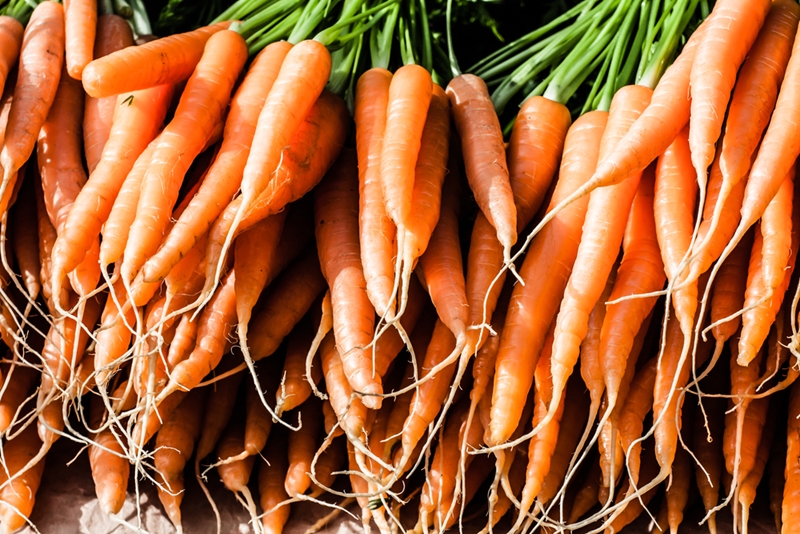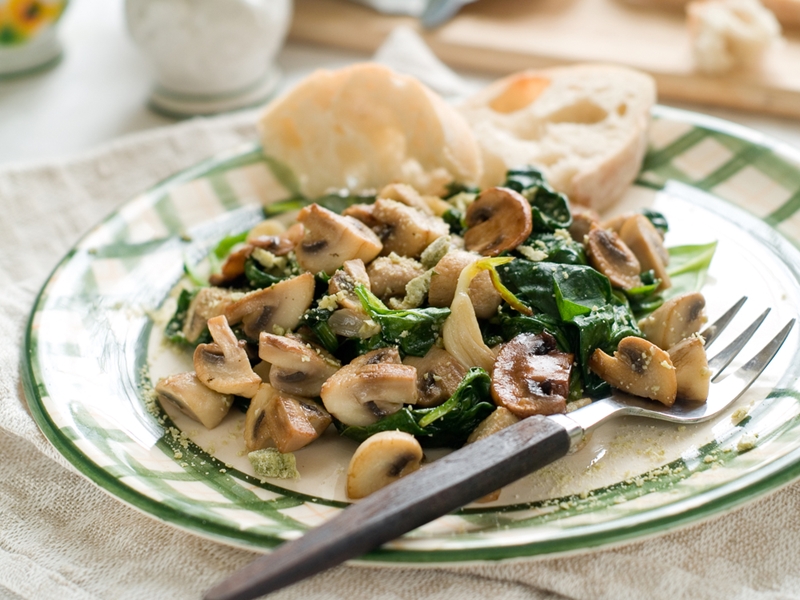
Thanksgiving is a time for showing your appreciation and love for family and friends. Make sure you're doing just that when you set the table by keeping their health in mind. Of course, you're allowed a few indulgences (maybe a slice of post-dinner pumpkin pie?), but your food should carry nutritional value overall. As part of supporting your whole well-being, it's crucial to consider dental health when making your side dish selections. Take a look at these foods that will give you a reason to smile this Thanksgiving:
"Carrots provide a great during-meal cleaning method."
Carrots
Carrots are commonplace on the Thanksgiving table, but this root vegetable offers more than naturally sweet deliciousness. The powerful antioxidants and vitamins found in carrots have been shown to reduce one's risk for cancer, cardiovascular issues and other diseases, according to Medical News Today. While improved well-being in general contributes to a healthy smile, carrots also have specific benefits for your teeth.
Carrots act as a sort of natural toothbrush for your teeth due to their crunchiness. Their abrasive texture actually scrapes off plaque, a bacterial film that constantly forms on the teeth. Its removal is crucial for preventing oral conditions such as cavities and periodontal disease. While brushing twice a day and flossing once per day can help prevent the buildup of this substance, eating carrots provides a great during-meal cleaning method. Similar crunchy foods such as apples and celery also supply these advantages.
Additionally, the act of chewing, otherwise known as mastication, increases the flow of saliva, the American Dental Association (ADA) noted. Carrots require more chewing than softer foods, which means this vegetable allows for greater saliva production. Saliva is necessary to digest food, wash away acids and strengthen enamel.
Avoid making the carrots too soft while cooking, otherwise they'll lose that tooth-healthy crunch. This roasted carrot recipe from the Food Network offers directions on a flavorful side dish, and a few adjustments can make it even more powerful for your oral health. Use thicker carrots that will better maintain a harder consistency and don't leave them in the oven for the full 20 minutes as the recipe suggested. Additionally, regularly test their tenderness while cooking to ensure they're still crisp.

Carrots act as a natural toothbrush.
Spinach
Don't forget about your leafy greens this holiday. Whether eaten on their own or mixed in with a flavorful side dish or salad, these veggies will make a great addition to your Thanksgiving table. While they hold the same overall health benefits as most vegetables, spinach in particular is especially advantageous for oral health, according to Colgate. One reason spinach made the cut? It's chock full of calcium. Calcium is essential for preventing tooth loss and maintaining overall dental health. Studies have shown that calcium deficiency causes signs of osteoporosis in the teeth and jaw, a condition marked by weak and brittle bones. However, raising calcium intake can reverse these symptoms.
Spinach also contains folic acid, which plays a role in abating canker sores - lesions in the mouth. In fact, canker sores have been linked to a lack of this crucial mineral, among other vitamins. Have you noticed your gum line is red and puffy? Spinach can help with that, too. Gingivitis, the first stage of periodontal disease, is marked by swollen and tender gums, and folic acid may help control that inflammation.
Unlike carrots, the nutrients in spinach carry greater benefits than the texture, so you have more options with how you cook this leafy green. You're not limited to salad, and this vegetable can actually taste really good. That being said, avoid adding large amounts of butter or salt with spinach, as these ingredients essentially defeat the purpose of eating the vegetable. Instead, throw spinach in with a steamed vegetable medley, or whip up this mushroom and spinach side dish featured on Allrecipes.

Mix spinach and mushrooms for a healthy side dish.
Cranberries
Cranberry sauce is a Thanksgiving staple, and it's far more than just a source of sweet and tangy goodness. Cranberries contain polyphenols, which protect against plaque. Plaque becomes a problem when it is stuck on the teeth and reacts with sugars in the mouth to create acid. As a result, the acid attacks the tooth's enamel and causes cavities. The berry's qualities essentially block plaque from adhering to the teeth, preventing damage, the University of Rochester Medical Center explained. In fact, cranberries may stop the formation of plaque altogether, as this fruit targets glucan, the building block of this sticky film.
Cranberry sauce is normally high in sugar, but there are ways you can give it an extra health kick. For example, this cranberry sauce recipe by Fannetastic Food uses only uses fresh orange juice, maple syrup, cranberries and thyme. When it comes to dental health - and your overall well-being for that matter - natural sugar is better than refined. Make sure you buy actual maple syrup for this dish and not just maple-flavored syrup, which will make all the difference in what type of sweetener you consume.
To safeguard your teeth this holiday, be sure to brush and floss after dinner. Remember, when it comes to oral health, it's best to eat food in one sitting rather than throughout the day. Find a dentist to get professional dental care tips on how your family members can manage their smiles this holiday season.
